
MENUMENU
TALK TO AN EXPERT
Special Hours: 7AM – 6PM PST
TALK TO AN EXPERT
Special Hours: 7AM – 6PM PST
Whether you’re looking for more space or more privacy, boondocking can provide both. However, there are a few essential upgrades we think every boondocking RV needs to have. These upgrades can help you make the most of your time and ensure that every adventure goes smoothly. If you want to up your boondocking game, keep reading!
Today, we’re sharing five essential upgrades you need to make if you plan to boondock in an RV. Let’s dive in!
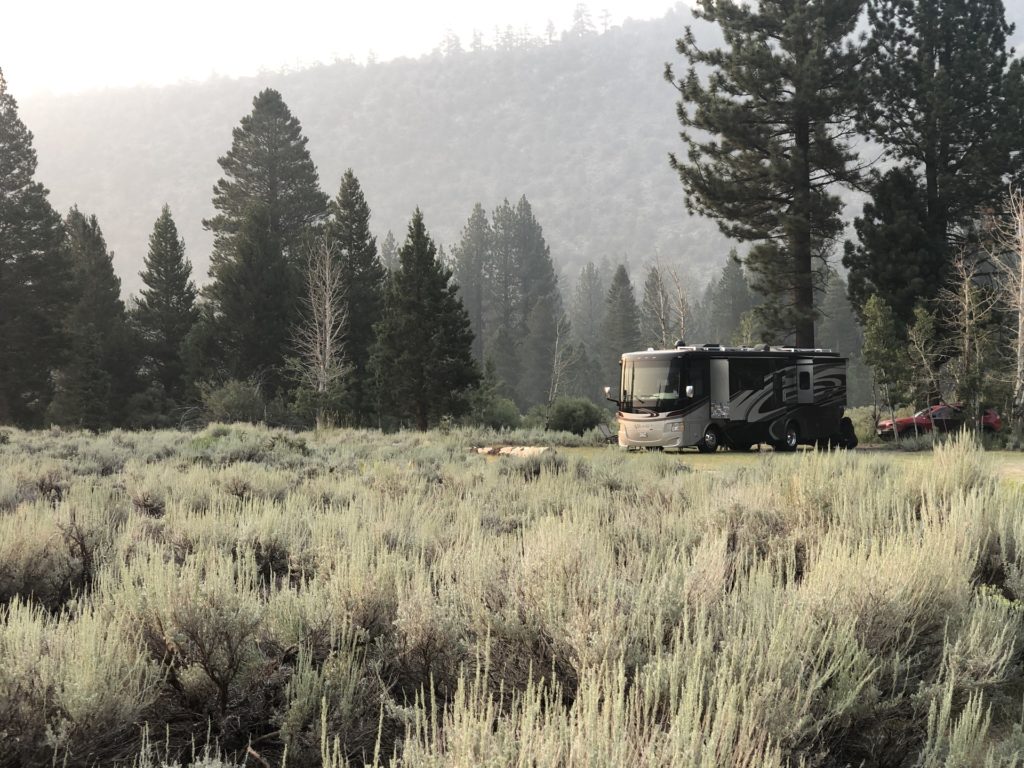
Boondocking is a style of camping that typically involves camping in an RV on public-use lands. The Bureau of Land Management (BLM) and the United State Forest Service (USFS) maintain thousands of campsites.
While camping in an established campground will typically provide some amenities like water, electrical connections, and even restroom facilities, you likely won’t find these while boondocking. These lands typically require boondockers to be entirely self-sufficient in power, water, and waste disposal. Campers should leave no trace to help ensure that the grounds are in excellent condition for future campers.
In our opinion, boondocking off-grid is the best form of camping. However, not all RVs are set up to take advantage of the quiet, beautiful, wide-open public spaces.
Depending on your needs, you can comfortably boondock in many RVs. Many boondockers use travel trailers, fifth wheels, motorhomes, camper vans, and truck campers. However, if we had to pick which one is best, we would go with a towable fifth wheel or travel trailer RV.
These provide a lot of storage for gear and supplies. Larger versions of these rigs also tend to have larger tanks and a generous amount of room on their roofs for solar panels. These qualities can help extend the amount of time an RVer can spend boondocking.
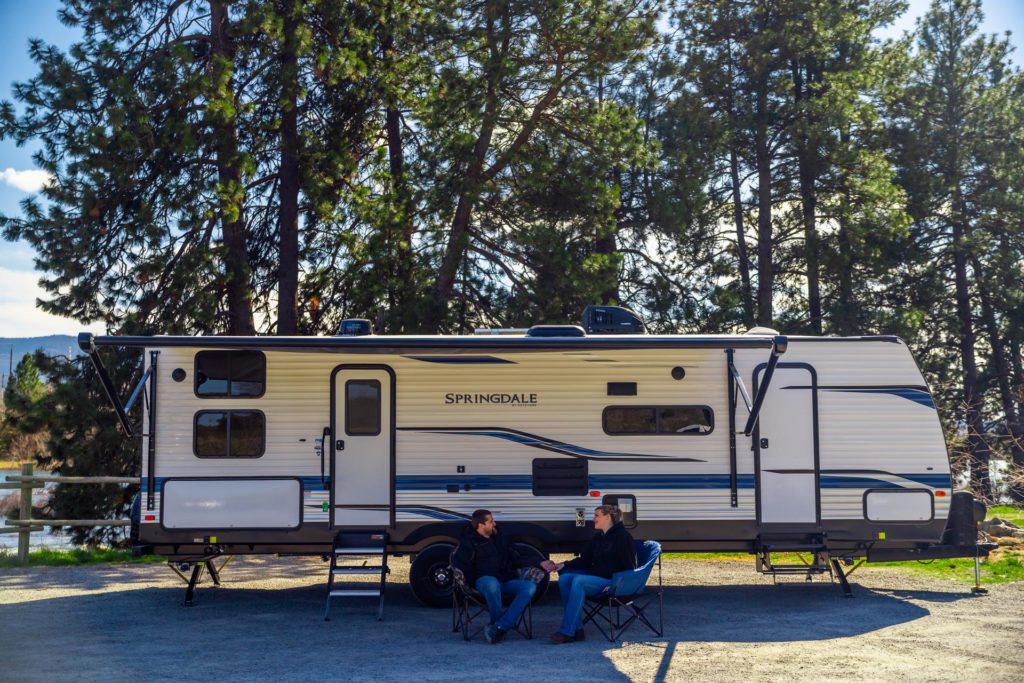
If you hope to spend time boondocking, consider making some of these upgrades. You’ll be able to increase your self-reliance and even extend your time enjoying some off-grid camping. Let’s get started!
Harnessing power from the sun can be an incredible way to keep your RV batteries charged. Solar panels can pull power from the sun and send it to your battery bank, whether you’re traveling down the highway or sitting at a campsite. Depending on the size and amount of panels you’re using, this can give your battery bank tremendous power.
One of the benefits of solar power is that it’s silent. If you’ve ever had to put up with the hum of a noisy generator while camping, you know how annoying they can be. Enjoying the sound of silence and the nature around you is worth the investment.
Want to learn more about solar? Check out our Beginners Guide To RV Solar Panels
The batteries that come in most RVs (lead-acid) are practically worthless when it comes to a boondocking RV. They’re great for most RVers who spend most of their time in campgrounds and rarely use their RV when it’s not plugged into a power source.
However, if you want to do some serious boondocking, you should upgrade to lithium batteries. These batteries can pack about twice the amount of power in roughly half the weight. And they usually charge much faster than a standard lead-acid battery. This allows you to limit the time you run a generator or be less dependent on a full day of sun.
But don’t take our word for it: Read some of our Customer Stories on how lithium has changed their lives!
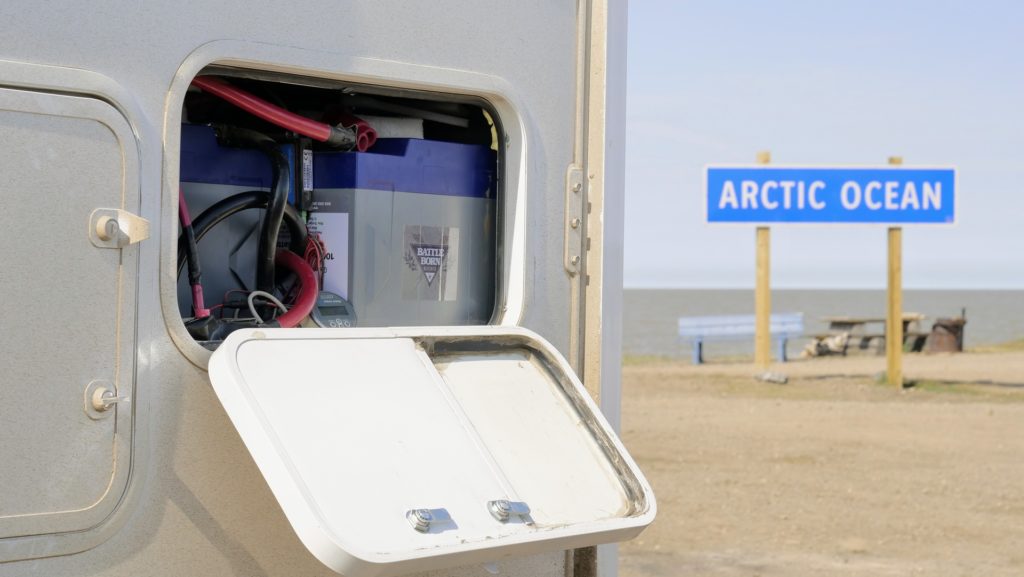
While you’re upgrading your lithium batteries, we recommend installing an inverter. An inverter will invert your 12V DC power to 120V AC power. This allows you to use electrical outlets to power TVs, charge laptops and other devices, and even use your microwave. This is another game-changing upgrade for many boondocking RVers.
Many adventurers choose to take advantage of their ability to work and learn remotely and hit the road to travel. Even if staying connected isn’t essential for you, it’s still nice to check in with friends and family during your adventures. Sadly, some of the best RV boondocking spots are very remote and may have limited cell signals.
A cell signal booster can enhance the signal from nearby cell towers. It can’t create a signal if there’s no signal present. However, a high-quality unit can turn a lousy signal into a usable signal in some cases. This increases where you can camp and allows you to camp in locations that might not be possible for others without a booster.
→ Learn more about what it takes to Work Remotely from Your RV or Van
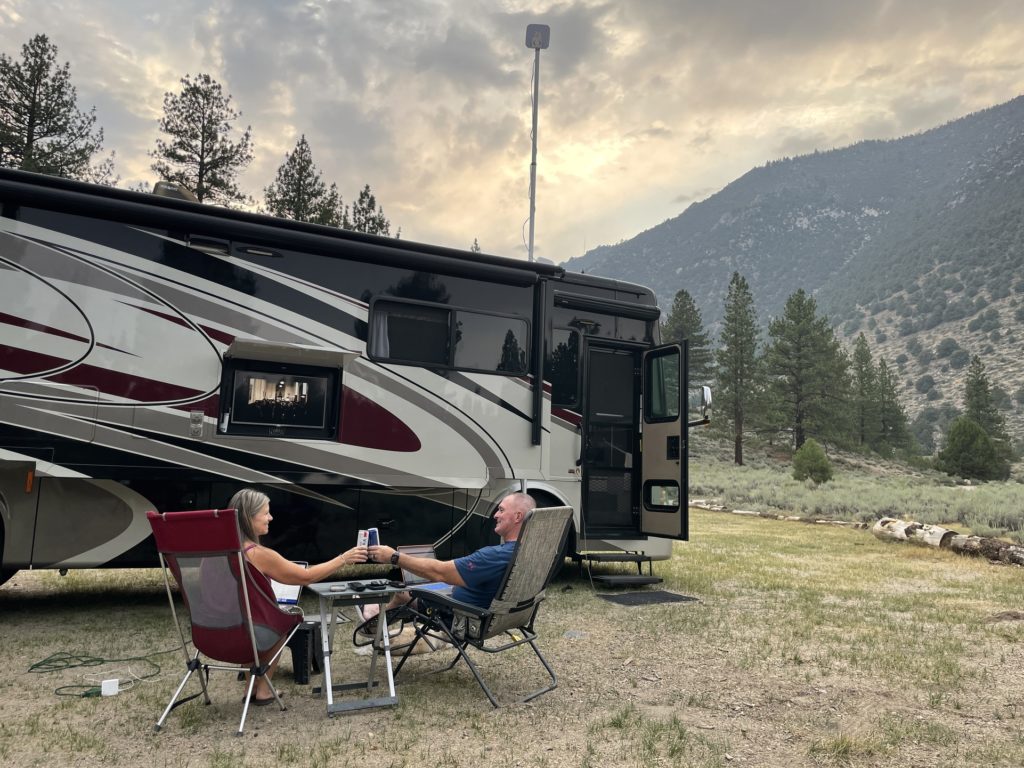
PS: You might notice an overlap of these upgrades with our recommended Game-Changing Upgrades for ALL campers. Boondockers aren’t the only ones that can reap the benefits of RV upgrades!
One of the most complicated parts of boondocking in an RV is managing your water usage. While this can be especially difficult when you’re new to boondocking, even experienced boondockers struggle with this from time to time. Some locations require planning and creativity to keep water in your freshwater tank.
Having portable water jugs or a water bladder can allow you to transport water from a water source to your RV. Portable water jugs are easy to carry but can take up a lot of storage space. Water bags or bladders, however, fold up and take up less space.
You have to manage your freshwater tank and your wastewater tanks. Having a portable wastewater tank lets you manage your wastewater without having to take your entire rig to a dump station. Because most boondocking sites are first-come, first-served, you run the risk of someone snatching your spot from you any time you leave.
RV boondocking is typically no less safe than camping in a typical campground. You should always take a few safety precautions no matter where you’re camping. Lock your stuff up to avoid being an easy target, and have a plan to protect yourself in case of an emergency. If you’re ever uncomfortable or feel unsafe at a campsite, you should move.
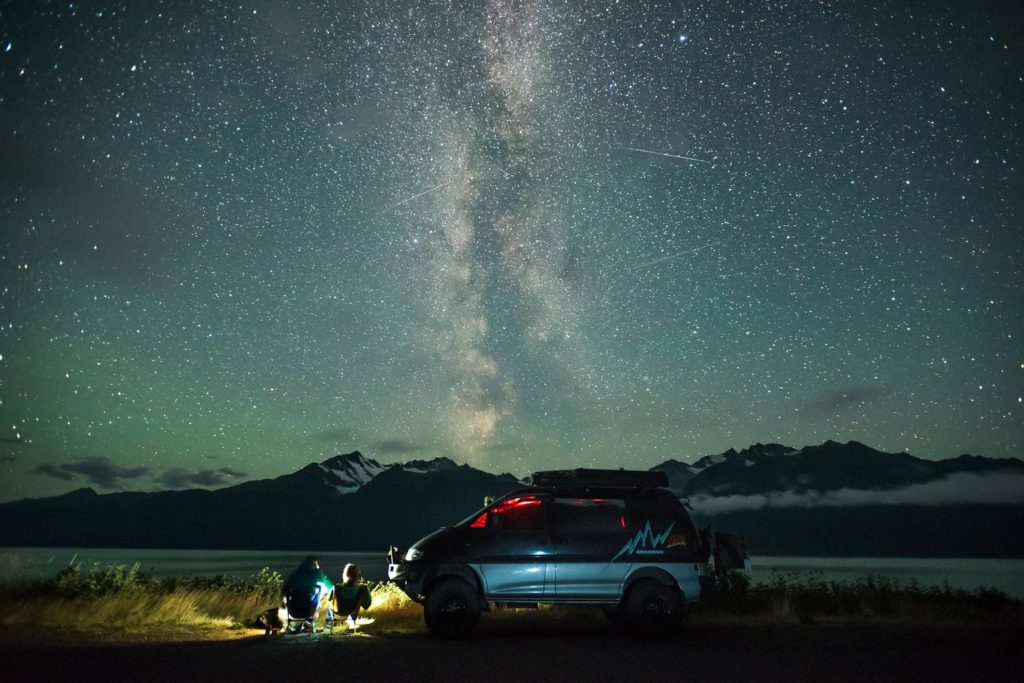
You should always make sure you have a way to receive emergency alerts, especially in remote locations. You may not get a weather alert on your cell phone if there’s no signal. A weather radio can help you receive weather and emergency alerts and can help keep you safe.
Many full-time RVers embrace boondocking as their preferred style of camping. Many areas will limit stays to a certain number of days, but you can move to your next boondocking location and start an entirely new stay.
Some RVers have spent months and even years boondocking in some pretty epic locations all over the country. They’ve even been able to snag some pretty amazing sites near some of the most popular tourist destinations like the Grand Canyon, Yellowstone National Park, and more!
Boondocking in an RV is an incredible way to adventure. You can gain a tremendous amount of privacy and space that most campgrounds simply can’t match. It’s one of the best ways to travel. Give this style of RVing a shot if you never have before. Start with short trips and work your way into longer trips as you develop your skills and make the necessary upgrades to your rig.
What’s the longest amount of time you’ve spent boondocking in an RV?
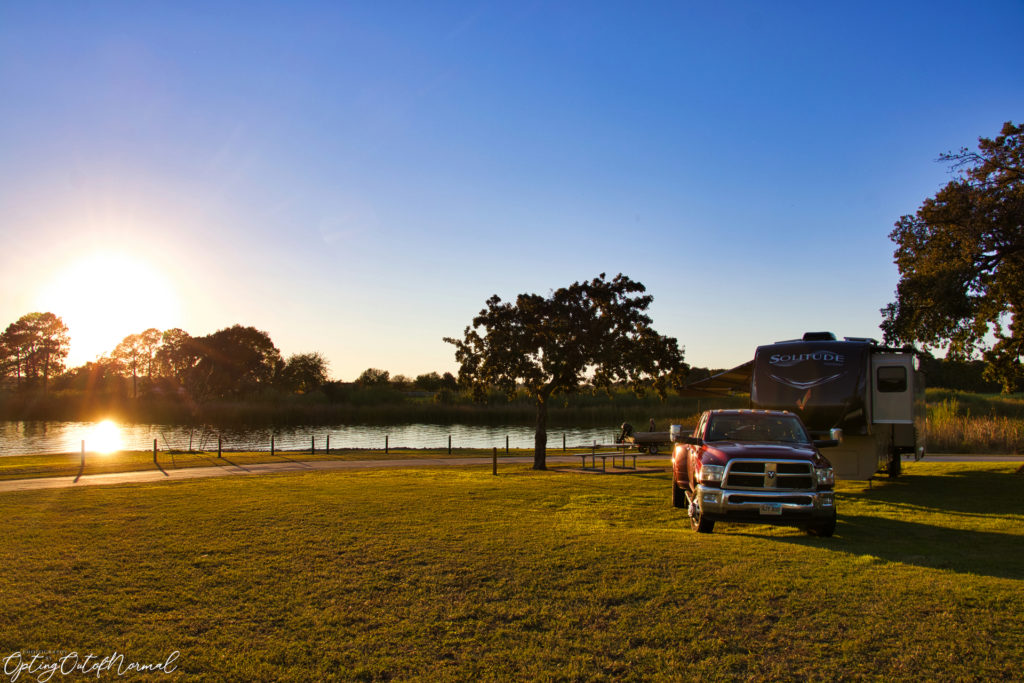
We know that building or upgrading an electrical system can be overwhelming, so we’re here to help. Our Reno, Nevada-based sales and customer service team is standing by at (855) 292-2831 to take your questions!
Also, join us on Facebook, Instagram, and YouTube to learn more about how lithium battery systems can power your lifestyle, see how others have built their systems, and gain the confidence to get out there and stay out there.
Shop Best Sellers








Ask a technical specialist now at 855.292.2831
Stay in the Know